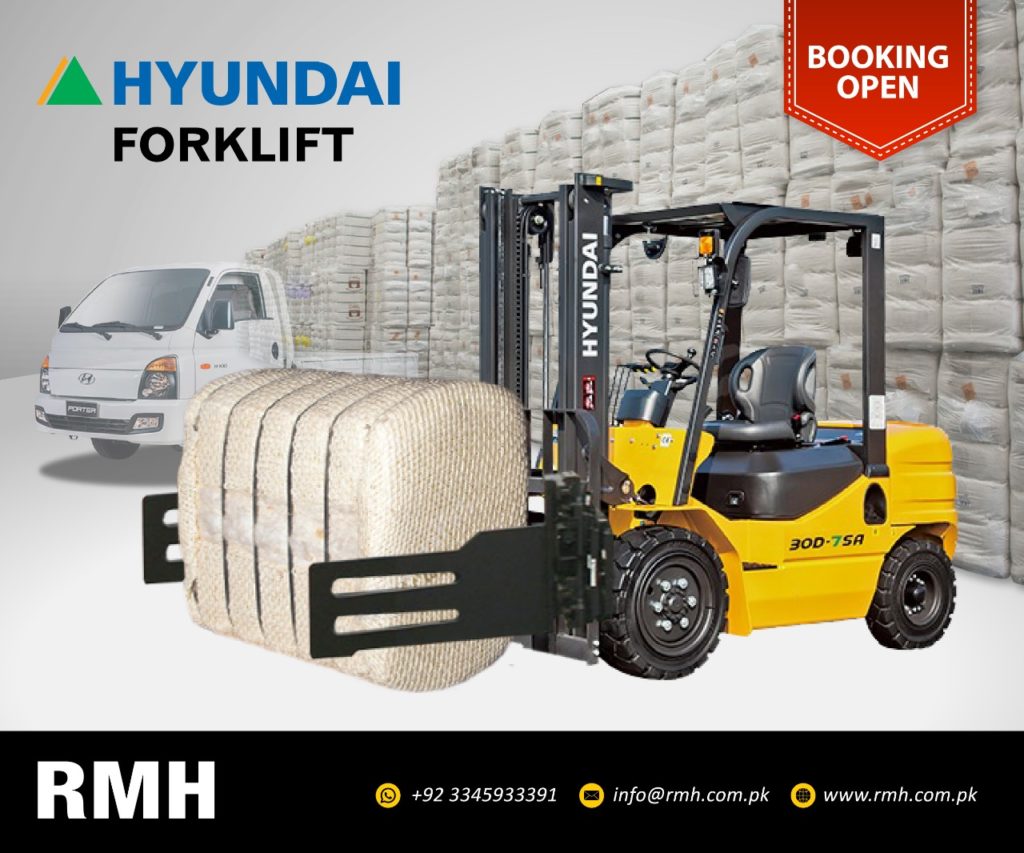Productivity Lift by Forklift with Bale Clamp
Bale Clamp Forklift is a Game Changer On Your Cotton Store!
Materials handling in a Textile spinning mill broadly involves handling of raw material, intermediate products, wastes, finished goods, stores and maintenance equipment/tools. During fiber to yarn conversion, materials (raw material, laps, sliver, roving, yarn, finished goods and wastes) are stored at different places and transported between departments.
Spinning mills receive raw materials – both cotton and man-made fibers – normally in the form of bales, in lorries. In the case of cotton, a bale weighs about 170 kg as standard whereas a synthetic fiber bale weighs around 300 kg. On arrival, these bales are first stored in godown, up to 10 feet height, in multiple layers, i.e., one above the other and then transported to the mixing department.
Manual Handling of Bales
In many mills, after arrival of lorries, bales are manually pushed down on the floor. Then, using single bale trolleys, the bales are taken to the godown one by one for storage. This is not only time consuming, dangerous and requires more workers to be engaged but also laborious.
The hazards commonly associated with bale handling and known to have caused serious injuries include:
- Dangerous maneuvering and loading and unloading of vehicles
- Unsafe use of lifting equipment
- Unstable stacking of bales
- Poor techniques for manual handling
- Unsafe bale opening
- Unsafe system of work
Forklifts with Bale Clamps
Hyundai Forklifts are widely used in Textile Mills in Pakistan to unload bales (2 or 3 at a time) directly from lorries, transport and stack them in godown. From godown, bales can easily be transported to the mixing department using Hyundai Forklift trucks with Bale clamps attachment.
Rastgar Materials Handling (RMH), Authorized distributor of Hyundai Forklift Trucks in Pakistan, offering special import facility for Forklift Trucks with Bale clamps attachment for Textile Millers in Pakistan.

